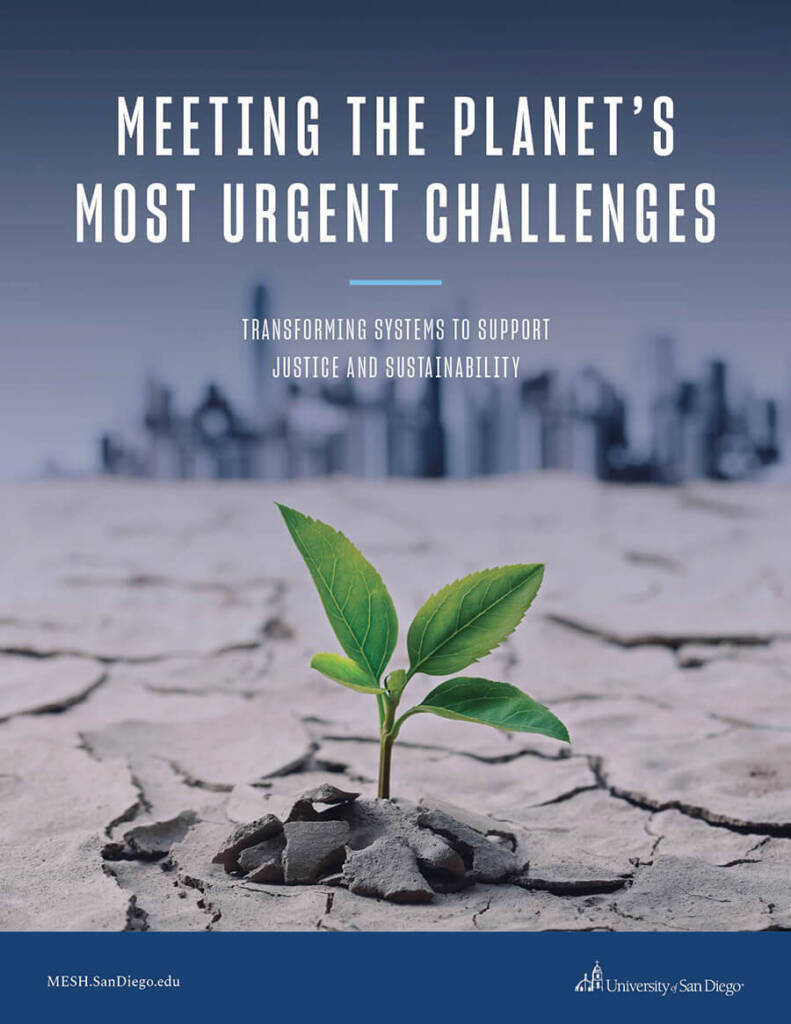More companies worldwide are taking sustainability seriously, and they’re in increasing need of skilled professionals to help them achieve their environmental, social and governance (ESG) goals.
For some, it’s a requirement, such as with the Corporate Sustainability Reporting Directive (CSRD) adopted by the EU Parliament, which now impacts more than 50,000 companies worldwide. For others, it makes financial sense, as more than 46% of consumers say they’re already purchasing more sustainable products, which has resulted in higher growth for products with ESG-related claims.
But beyond the legal requirements and financial benefits, more companies are investing in sustainable practices because they see it as ethical. If you’re looking to promote more sustainable practices or want to ensure that more of these companies can successfully achieve their ESG goals, then you should consider a career as a sustainability consultant.
Sustainability consultants provide the insights to show organizations the best way forward. If you’re passionate about enacting positive change and taking action for the environment, then a career as a sustainability consultant could be right for you.
Not only is it a chance to do work you believe in, but it’s also a career in high demand, offering a strong salary and opportunities for international work and travel. Here’s what you need to know about business sustainability consulting.
What Is Sustainable Consulting?
Sustainability consulting is a specialized consulting field that helps businesses and organizations solve environmental and social challenges while establishing and working toward strategic objectives. Organizations rely on sustainability consultants — sometimes referred to as green, eco or environmental management consultants — to provide guidance on how to achieve their ESG or sustainability goals without having to establish or invest in their own full-time, in-house sustainability departments.
Corporate sustainability consulting can consist of:
- Conducting environmental impact assessments to determine how operations are affecting the environment
- Developing sustainability strategies to create long-term plans to balance growth with social responsibility
- Evaluating regulatory compliance to ensure that operations adhere to all applicable laws and regulations
- Preparing sustainability reports to communicate all goals, efforts and progress to relevant stakeholders
- Managing energy efficiency and carbon reduction to decrease energy consumption and emissions
- Establishing corporate social responsibility programs to incorporate sustainable practices into the company’s core values
What Does a Sustainability Consultant Do?
Sustainability consultants work directly with companies and organizations as advisors. The specifics of their work will vary depending on the industry they’re working in, applicable regulations, available resources and the scope of the organization’s goals. Environmental consulting is also considered one of the professions that is directly working to address climate change.
Their work can cover a broad range of tasks and intended outcomes, ranging from improving the efficiency of the supply chain, updating business operations and investing in more sustainable product development or more effective waste management. Their ultimate goal is to work in the best interests of their clients by helping them adopt more sustainable or “greener” models while finding competitive advantages and working toward long-term profitability.
Aside from assessing possible environmental impacts and establishing ESG goals, their key duties can include:
- Reducing waste— Proposing and implementing waste management and recycling solutions to minimize environmental footprints
- Promoting cultural changes — Guiding companies in shifting their culture toward practices that are self-sustaining
- Data collecting and reporting — Analyzing data and producing reports for stakeholders to show progress on sustainability goals
- Educating and training — Leading cross-functional teams, educating employees and training stakeholders on sustainability initiatives
- Supporting marketing and sales — Assisting in promoting sustainability initiatives to communicate with the public and enhance brand reputation
- Improving workplace health and safety — Ensuring that the workplace and other facilities remain healthy and safe for all employees while adopting sustainability initiatives
What Is the Average Salary for Sustainability Consultants?
Job opportunities for sustainability consultants are expected to continue growing. Investment in ESG and sustainability consulting is forecasted to drive a very strong compound annual growth rate (CAGR) of 17% — which would push the market to a record $16 billion by the year 2027.
As with most positions, the exact salary for a sustainability consultant will vary based on job requirements, level of experience, geographic location and industry. According to major job aggregator sites*:
- Salary.com lists a range of $93,373 to $124,058
- Indeed lists a salary average of $79,777
- Glassdoor lists a range of $82,000 to $151,000
* Salary estimates were retrieved in October 2024.
What Skills are Needed to Start a Career as a Sustainability Consultant?
Though different sustainability consultants will have common goals between them, they all come from a wide range of backgrounds and areas of study. Depending on which industries they’re consulting for, as well as the specific elements they’re consulting on, sustainability consultants can be engineers, scientists, architects, legal experts or policy analysts.
Beyond expertise in their field, sustainability consultants will need a strong set of interpersonal and organizational skills, including:
- Strong project management skills
- Excellent communication and presentation skills
- The ability to collaborate effectively across various teams
- Strong understanding of federal and state environmental regulations
- Knowledge of sustainability frameworks and industry best practices
What Qualifications Are Needed?
Exact qualifications will vary by position, especially across different industries. In general, a qualified sustainability consultant will have earned the following:
- A degree from an accredited college or university program
Whether you’re considering working for a consulting firm or starting your own consulting service,most clients will pass you by if you haven’t earned at least a bachelor’s degree. While there are no official education requirements for sustainability consulting, the expectation is that consultants have a bachelor’s degree in the field of study related to their work, such as environmental studies, sustainable development, construction, environmental science, earth science or an engineering field.
A master’s degree may even be preferred by some companies and organizations, as it indicates a higher level of specialization and subject mastery. Transdisciplinary environmental programs such as the Master of Science in Engineering, Sustainability and Health (MESH) can provide a wider lens into other disciplines for aspiring consultants, allowing them to build collaboration skills and develop insights necessary for creating effective and comprehensive solutions. - Relevant industry certifications
Certifications supplement your education and experience to enhance your credibility, demonstrate expertise in specific sustainable practices and show that you’re up-to-date on compliance expectations and industry standards.Research the differentorganizations that offer sustainability certifications and see which may be most applicable for your areas of consulting. Consider the following major organizations and their associated certifications:- U.S. Green Building Council (USGBC) Leadership in Energy and Environmental Design (LEED)
- International Society of Sustainability Professionals (ISSP)
- The Association of Climate Change Officers (ACCO)
- Global Reporting Initiative (GRI) Professional Certification
- Sustainability Accounting Standards Board (SASB)
- International Organization for Standardization (ISO)
Who Hires Sustainability Consultants?
The sustainability consultant career path is flexible, and consultants can work for government agencies, consulting firms, non-government organizations (NGOs) and private companies. Sustainability consultants can find employment across a wide variety of fields, including:
- Waste management
- Renewable energy
- Mining and drilling operations
- Infrastructure planning
- Agriculture
- Manufacturing
- Industrial facilities operations
- Residential and commercial construction
- Corporate enterprise
A search of different job aggregator sites* found job listings for sustainability consulting positions at:
- Colliers International
- Verdantas
- Trinity Consultants
- Guidehouse
- Partner Engineering and Science
- Environmental Resources Management, Inc
- Iconergy
- WSP in the U.S.
- Rio Tinto
* Search was conducted in October 2024
How Do I Become a Sustainability Consultant?
Everyone’s career path will look different, but there are certain educational degrees, work experiences and professional best practices you can take to increase chances of success.
- Earn a bachelor’s degree in a relevant field. Consider the type of consulting you’d like to do and in which fields or industry. You’ll want to pursue a bachelor’s degree specific to that field. Popular choices include environmental studies, sustainable development, design and engineering, construction and/or architecture and environmental or Earth sciences.
You’ll want to complement your major with courses in business management, economics or public policy to build your expertise into the strategic and regulatory aspects of sustainability. - Gain experience in consulting. You’ll be very lucky to earn a position with a consulting firm directly out of school. Look for multiple opportunities to build up your professional experience, such as:
- Internships and fieldwork with environmental organizations, NGOs or companies that focus on sustainability efforts. Hands-on experience will help you understand the practical applications of sustainable practices.
- Graduate projects that enable you to engage in consulting services as part of your studies. Many programs offer the chance to work on real-world sustainability problems for companies or municipalities.
- Entry-level jobs related to environmental management, corporate social responsibility (CSR) or energy consulting. This early experience will provide you with valuable knowledge about client management, problem-solving and sustainability strategies.
- Research responsibilities, job requirements and certifications. Sustainability consultants can work in a variety of fields — renewable energy, waste management, corporate sustainability, sustainable supply chains, green construction, etc. When you’ve identified your preferred sector, focus on gaining the necessary specialized knowledge and skills. You’ll want to look into which organizations offer the preferred certifications for sustainable practices and what the requirements are.
- Engage in continuous learning. Once you determine the most important certifications for the type of consulting you want to do, invest in earning those certifications. It’s also important to stay current with evolving standards and practices by attending workshops, webinars or short courses related to emerging trends and technologies in sustainability.
- Build a strong network. Networking is key in consulting careers. Begin building relationships early with mentors, peers and industry professionals. This can be done by joining professional organizations such as the International Society of Sustainability Professionals (ISSP) and the Green Building Council, attending conferences, finding mentors and building client relationships.
One way you can build these skills and experiences is by pursuing a master’s degree program. Transdisciplinary programs like MESH are an effective and insightful way of understanding the many different contexts that inform sustainable practices. If you’re passionate about working toward sustainability and bringing true solutions to your industry, collaborating with professionals from different backgrounds will allow you to take into account unintended consequences and new viewpoints to create better solutions.
Frequently Asked Questions
Looking to Support Justice and Sustainability?
Start with our eBook, Meeting the Planet’s Most Urgent Challenges, to see where and how you can make a difference.





